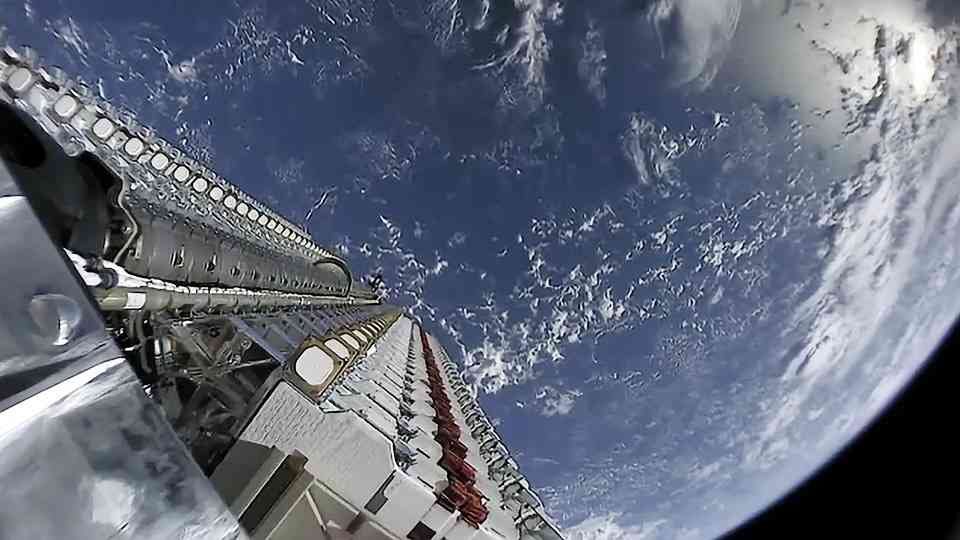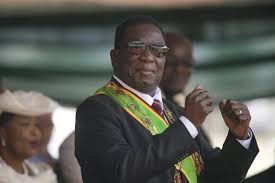
President Emmerson Mnangagwa on Saturday announced that the postal and telecoms regulator had licensed Starlink to operate in Zimbabwe bringing to end the long wait by consumers for cheaper internet service.
The licensing of Starlink, a Low Earth Orbit (LEO) satellite operator wholly owned by Elon Musk’s SpaceX, was largely expected after the Postal and Telecommunications Regulatory Authority (Potraz) recently said that it had received an application by Starlink to operate in Zimbabwe.
Posting on X, formerly Twitter, Mnangagwa said the strategic pillars of his administration and Vision 2030 were innovation, science and technology.
“Prioritisation of the digital economy and the emerging importance of technology in our day-to-day activities requires the government to lead from the front in providing an environment where investment in technology is promoted. In this vein, I'm pleased to announce that I have approved the licensing of Starlink by Potraz to provide advanced internet and related digital processing services in Zimbabwe through its sole and exclusive local partner, IMC Communications (Pvt) Ltd,” Mnangagwa said.
He lauded the entry of Starlink in Zimbabwe as a response to the Zimbabwe is open for business mantra.
Mnangagwa said the entry by Starlink in the digital telecommunications space in Zimbabwe was expected to result in the deployment of high speed, low cost LEO internet infrastructure throughout Zimbabwe and particularly in all the rural areas. “This will be in fulfilment of my administration’s undertaking to leave no one and no place behind,” he said.
The Starlink service is already live in eight African countries — Nigeria, Rwanda, Mozambique, Kenya, Malawi, Zambia, Eswatini and Benin.
Starlink offers faster speeds and lower latency in remote areas where satellite and cellular internet are the only options thereby bridging the digital divide.
- Corruption Watch: Get scared, 2023 is coming
- Corruption Watch: Get scared, 2023 is coming
- Letters: Ensuring Africa’s food security through availability of quality seeds
- Is military's involvement in politics compatible with democracy?
Keep Reading
It is also cheaper, uncapped and faster than services offered by local providers.
While the licensing of Starlink could have drowned the nation in celebrating a milestone, attention has, however, been drawn to its local partner IMC Communications (Pvt) Ltd which is linked to Zanu PF party’s new benefactor Wicknell Chivayo.
A search on the internet showed that its website is currently under construction. This came after it was outed for allegedly stealing pictures on the internet and claiming to be its employees.
Questions are being asked about how the local partner was chosen. There are also questions on why it had to take the whole President to announce the entry of Starlink in Zimbabwe when the regulator is there and so is its parent ministry.
Was the government's hard-line stance in labelling the Starlink service a security threat and the swoop on those using the service genuine or was it a ploy to gain leverage?
This feeds into the narrative of cronyism that has stuck on this administration like mud.
There is no doubt that the Starlink service will bridge the digital gap.
In Rwanda, for example, the licensing of the Starlink service has seen the government working with the Tony Blair Institute (TBI) to provide internet connectivity to 50 schools in mostly hard-to-reach areas.
“More than 15 000 students gained access to the internet and the opportunities it provides, after an implementation phase that was less than three months long,” the TBI said, adding that the project with Starlink had “empowered teachers by providing access to additional educational tools, such as virtual laboratories to deliver science lessons”.
Rwanda had 5 102 Starlink subscribers as at March 31, according to the report by the Rwanda Utilities Regulatory Authority for the first quarter ended March 31, 2024.










